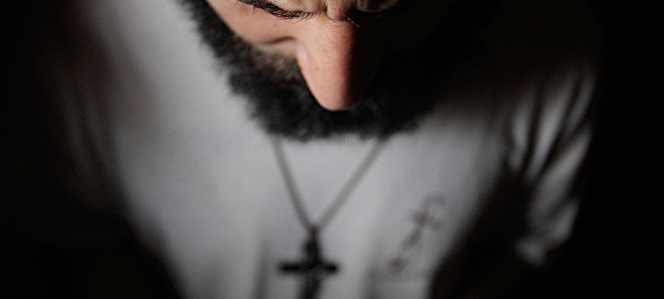Few texts from Scripture are as misunderstood or misapplied today as Jesus’ teaching on judgment from the Sermon on the Mount. All too often it is employed to buffer a relativist version of Christian ethics — charity simply means one cannot judge the rightness/wrongness of others’ choices, and being ‘judgmental’ in this sense is the highest offence against Christian charity.
Of course, this is absurd as the entire matrix of Scripture, taken as a whole, offers us divinely revealed criteria for judging the truth of our choices so that we might come to live in conformity with God’s plan for human fulfillment.
What seems to be envisioned here in this text, judging by the examples that follow the ‘judge not’ clause, is a vision of judgment that eschews all attempts to exempt ourselves from the divine standards of justice we so readily apply to others’ lives. When I look at the truth of things, Jesus says, I myself must be the first and primary subject of God’s truthful judgment. And from there, from that epicenter of the spiritual life, a wonderful and supremely elusive virtue comes to birth: humility.
Santa Cruz
We will simply define humility simply as the ability to see and embrace the truth as God sees it. And among the Church’s great teachers, St. John of the Cross has some of the most insightful and incisive remarks on the nature of this grounding virtue, one of which I will reflect on briefly here.
John contends that as we pass through the ‘purgative nights,’ those purifying inner trials that progressively starve our voracious, in-turned ego of its diet of junk-food, we begin to see our own interior wreckage more clearly. But because the God-of-mercy is the One exposing it, we see our wreckage not as a source of shame and self-loathing but as the raw material out of which God constructs His greatest edifice: holiness.
This particular vision of ourselves that emerges from the midst of these ‘purgative fires’ is a vision held together by humility alone, for without humility we would either despair over our own brokenness or continue to nurse our insular illusions of grandeur whilst we glibly damn those flawed around us who threaten our fragile and pathetic self-made reality.
Tell Me the Truth
One effect of humility in this regard, John argues, is that we begin to welcome the critical insights of others into our own ‘wooden beams.’ In the early stages of growth, we seek out the honest appraisals of those whom we trust and love — and what a welcome and wonderful gift it is to have one who loves us and knows us well enough to tell us the unvarnished truth about ourselves!
But as we advance in humility, John adds, we begin to welcome the criticisms of those we do not like or trust, weighing the value of their words and gladly taking to heart what is useful. But eventually, John concludes, we begin to taste the mysterious joy of the final Beatitude and come to rejoice even in the unjust attacks on us. We have become so secure and internally grounded in Christ’s standard of truth that we are able to see in all circumstances the truthful judgments of God’s Providential hand.
Mother Teresa said it most succinctly — “If you are humble nothing will touch you, neither praise nor disgrace, because you know what you are.”
Though most of us (me especially!) are far from those later stages of humility, knowing the heights to which we are called helps us even now to cultivate humility and see others’ sins in a new and, as Newman would say, kindly light.
